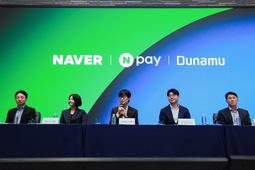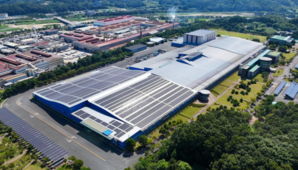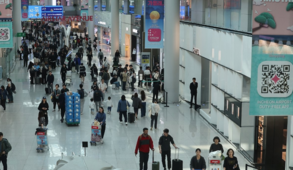
[News Space=Reporter seungwon lee] Nongshim Kellogg (CEO Jeong In-ho) is facing a red light for its management performance and financial structure. However, its major shareholder, the US-based Kellanova, is paying no attention to this and is being criticized for maintaining a high dividend payout ratio and pursuing profit maximization.
According to the audit report of the Financial Supervisory Service's electronic disclosure system on the 31st, Nongshim Kellogg's sales in 2024 decreased slightly compared to the previous year, but both operating profit and net profit decreased by more than 30% compared to the previous year.
Nongshim Kellogg's sales last year decreased by 1.1% from the previous year's 211.6 billion won to 209.3 billion won in 2024.
Operating profit was 13 billion won, a sharp 36.3% decrease from 20.4 billion won the previous year. The operating profit ratio also plummeted to 6.2% from 9.6% the previous year. Net profit also decreased 35% from 16.5 billion won the previous year to 10.7 billion won.
This is because sales in the snack (-6.6%) and beverage (-13.8%) categories decreased significantly due to the economic slowdown in the domestic market. At the same time, sales expenses increased due to increased export-related costs such as promotional expenses and shipping costs.
Foreign exchange losses occurred due to foreign exchange rate fluctuations, which affected the decrease in net income. The corporate tax burden ratio (18.9%) compared to pre-tax profit also appears to have contributed to the decrease in net income.
A financial expert in the distribution industry evaluated, "Nongshim Kellogg's net profit is analyzed to have decreased by about 35% year-on-year due to a combination of factors including a slowdown in the domestic market, rising global costs, foreign exchange losses, and restructuring costs."
Looking at the details, product sales decreased by 6.1% year-on-year to KRW 127.4 billion, while merchandise sales increased by 7.8% year-on-year to KRW 81.8 billion.
In the audit report, product sales and merchandise sales are important concepts for understanding the sales structure of a company. Product sales are sales generated by selling goods that the company has produced through its own manufacturing process. In other words, when a company manufactures a product using raw materials and sells it, the sales are classified as product sales. Product sales are sales based on the company's technological prowess and production capacity, and are closely related to R&D investment.
On the other hand, product sales are sales generated by selling finished products purchased from outside without additional processing. When a distributor purchases and sells finished products from other companies, the sales are classified as product sales. In other words, product sales depend on sales force and distribution network, and profitability is often lower than product sales.
In other words, in the case of Nongshim Kellogg, although product sales increased, the fact that product sales decreased proves that the competitiveness of its own products is declining.
The debt ratio decreased to 91.3% from 107.1% the previous year. Current liabilities decreased by 21.2% year-on-year to KRW 41.4 billion, but still account for a significant portion of total liabilities. This means that short-term financial obligations are still high. Among non-current liabilities, retirement benefit reserve liabilities amount to KRW 12.2 billion, showing that long-term employee welfare and retirement payment obligations account for a relatively large proportion of capital.
Cash flow from operating activities decreased by 45% year-on-year to KRW 10.7 billion. There are KRW 16.7 billion in sales from overseas related companies, KRW 5.4 billion in technology fees, and KRW 3.4 billion in foreign currency translation losses (exposure to multiple currencies such as USD, EUR, and THB). This is a common problem for companies that rely heavily on foreign currency borrowings or overseas transactions. In addition, operating lease liabilities amount to KRW 4.7 billion, of which KRW 2.7 billion is due within one year.
Selling and administrative expenses amounted to 50.7 billion won, of which 8.4 billion won was spent on salaries, 7.7 billion won on sales promotion, 6.8 billion won on advertising and publicity, and 1.3 billion won on welfare.
Nongshim Kellogg was established in March 1981 through a joint investment agreement between Nongshim and its founder, the late Chairman Shin Choon-ho, and the Kellogg Company of the United States. Currently, it sells Pringles, Corn Frost, All Bran, Chex, Grain Story, Fruit Rings, Almond Flakes, Corn Flakes, Special KGranola, Coco Pops, Hershey's Choco Crunch, Almond Brown Rice Flakes, and Kellogg's Bars.
Looking at Nongshim Kellogg's shareholding structure, the largest shareholder is Kellanova Latin America, which owns 90% of the total shares. Kellanova is a global food manufacturing company formerly known as Kellogg Company, and was reorganized into a company in charge of the international snack and cereal business after the corporate split in 2023.
Nongshim, a Korean ramen company, owns 8.26%, but its influence on management rights is limited. The 1.1% stake held by the late Nongshim Chairman Shin Choon-ho was inherited by his second son, Shin Dong-yoon, Chairman of Yulchon Chemical. Yulchon Chemical Corporation also owns a 0.6% stake.
In particular, given that the largest shareholder, Kellanova, owns 90% of the shares, Nongshim Kellogg's dividend policy is likely to be seen as a strategy to prioritize the interests of major shareholders and a strategy to recover the capital of major shareholders. In other words, due to the decision to pay a dividend of 2,000 won per share in 2024, Kelanova will receive 90% of the total dividend. This, combined with the high dividend payout ratio (85.5%), could be criticized as being focused on realizing the interests of major shareholders rather than accumulating internal reserves.
This is also reflected in the payment of technology fees (KRW 5.4 billion) and the proportion of transactions with special related parties (approximately 80% of sales), and may limit independent management or securing reinvestment capabilities.
Nongshim Kellogg's dividend payments over the past four years were KRW 9.2 billion in 2021 (dividend payout ratio: 64%, based on KRW 14.4 billion in net income), KRW 20.7 billion in 2022 (dividend per share of KRW 4,500, including interim dividend of KRW 2,250, dividend payout ratio: 174%, based on KRW 11.8 billion in net income), KRW 11.5 billion in 2023 (dividend payout ratio: 68%, based on KRW 16.4 billion in net income), and KRW 9.2 billion in 2024 (dividend payout ratio: 86%).
The dividend payout ratio is the dividend amount divided by net income for the period. If it exceeds 100%, it means that more than the annual net income was distributed to shareholders.
In particular, in 2022, despite a decrease in net income, dividends increased by about 125% year-on-year, and were criticized for their high dividend payout ratio (174%). In 2023 and 2024, dividends decreased, but a significant portion of net income still went to major shareholders.
A distribution industry insider emphasized, “Nongshim Kellogg’s high dividend policy based on its shareholder structure and financial status could cause controversy in relation to maximizing the interests of major shareholders,” and “improvements are needed in terms of protecting the rights of minority shareholders and corporate governance.”
























































